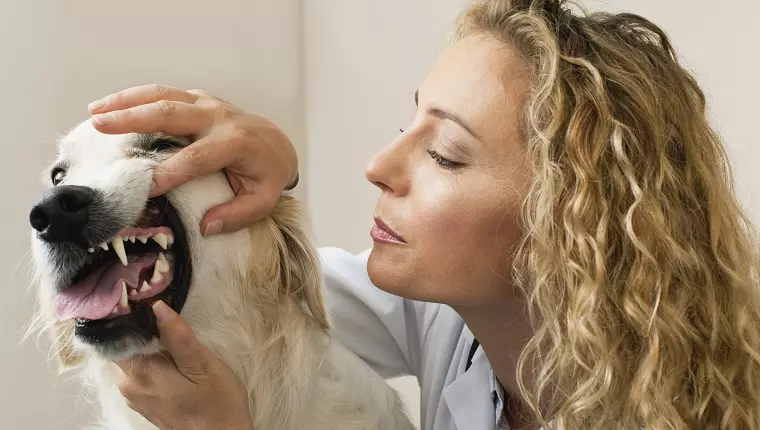February is recognized as National Pet Dental Health Month, an occasion that sheds light on a crucial aspect of pet care that often goes unnoticed—dental hygiene. While many pet owners focus on diets, exercise, and playtime, the importance of maintaining their dog’s oral health is frequently relegated to the background. This oversight can have serious implications, as studies show that approximately 80 percent of adult dogs show significant signs of dental disease.
A dog’s mouth is an inviting environment for bacteria, thanks to its warmth, moisture, and the nutrients that linger after meals. While some bacteria are beneficial and essential to a dog’s health, poor dental hygiene can lead to an overload of harmful bacteria, resulting in plaque and tartar buildup. This can escalate into severe dental issues, which, in turn, can have dire consequences on the dog’s overall health.
Malodorous breath is often the first warning sign that pet owners may recognize, but neglecting dental care can lead to problems far worse than just “doggy breath.” Periodontal disease can release toxins into the bloodstream, affecting vital organs like the heart, liver, and kidneys. Over time, this can lead to chronic health conditions, organ failure, and even premature death. This reality can catch many dog owners off guard during a veterinary check-up if they learn that what seems like a minor dental issue has developed into a major health concern.
The Ripple Effect of Dental Health on Lifespan
Veterinarians emphasize the critical nature of regular dental care by quantifying its impact on a dog’s lifespan. It’s been observed that a well-maintained dental routine can potentially extend a dog’s life by several years—15 to 17 years with daily brushing, versus 11 to 13 years without it. This stark difference underscores the vital role of dental hygiene not only in preventing immediate discomfort but also in enhancing the pet’s quality and duration of life.
Much like humans, dogs require professional evaluations alongside at-home care. Regular vet check-ups are essential for identifying early signs of dental disease, which may include loose teeth, swollen gums, or infected sockets. Recognizing and addressing these issues promptly can prevent them from escalating into painful conditions that detract from a dog’s well-being.
Getting started with a dental care regimen might seem daunting, especially for new dog owners. However, the key is to instill these habits early in a dog’s life to make them accustomed to the process. Many veterinarians are willing to offer guidance on how to brush a dog’s teeth effectively and may sell specialized brushes and toothpaste designed for canine use. Selecting the right brush size—soft-bristled and appropriately sized for your dog’s mouth—is crucial.
For dogs that resist traditional brushing, alternatives like finger brushes or gauze can be effective. It’s important to avoid using human toothpaste, as it can be harmful to pets. Instead, opt for pet-specific toothpastes that come in palatable flavors such as beef or chicken, allowing for a more enjoyable experience for the dog.
When embarking on home dental care, patience is key. Introduce the brushing gradually, offering praise and treats to encourage positive associations with the procedure. Focus on cleaning the outer surfaces of the teeth, starting with gentle motions from the gum line.
Diet is another critical factor influencing your dog’s dental health. Nutritional choices can actively contribute to maintaining oral hygiene. High-quality, meat-based dog foods can keep a dog’s mouth environment healthy while chew toys and dental treats can further assist in reducing tartar buildup. Products like Kong dental toys provide a satisfying way for dogs to engage with something while simultaneously maintaining their teeth.
While some commercially available treats are formulated specifically for tartar control, pet owners should remain aware of the caloric intake and overall diet to preserve their dog’s weight and health. Consulting with a veterinarian can help craft a diet plan that supports optimal oral health, keeping in consideration necessary nutrients and caloric intake.
Taking the steps to ensure your dog’s oral health can substantially improve both their quality of life and longevity. Engaging in both professional dental care and at-home practices fosters a healthier mouth and body. By observing the signs of dental issues and starting a consistent routine, pet owners can contribute significantly to their furry friends’ happiness and health. So, as National Pet Dental Health Month unfolds, let it serve as a reminder to prioritize your dog’s dental care—ensuring they can flash their happiest, healthiest smile for years to come.

